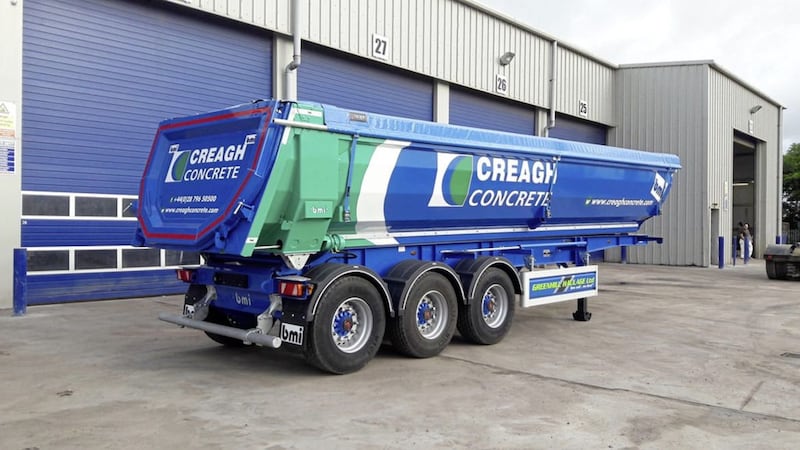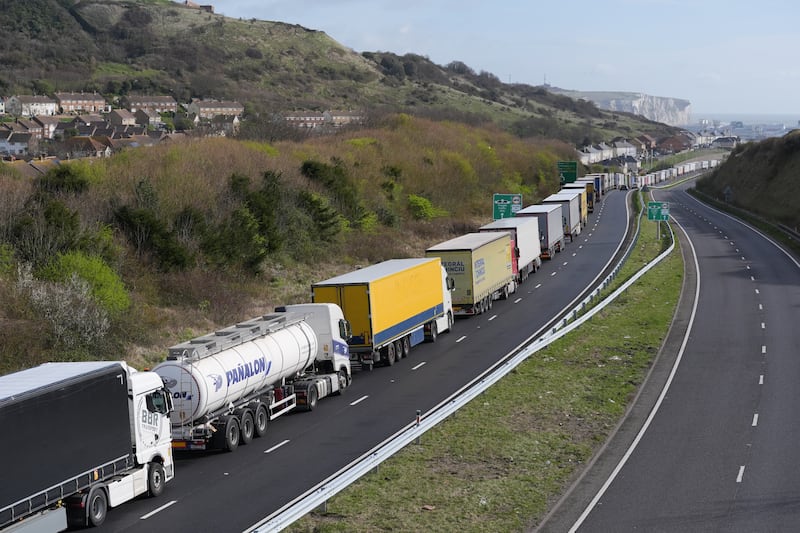THE votes are cast and counted and we're out of the EU. Brexit first emerged as a loose sort of concept, a buzzword born out of the current trend of marrying two words together. In this column in March I expressed a worry that English voters were so short-sighted that they could not be trusted to make the right decision on future membership of the EU. But even I didn't really believe, deep down, that common sense would not prevail in the end.
Nobody should be in any doubt, whatever some politicians may say, that Brexit is a disastrous prospect for the wider UK but particularly for Northern Ireland. And I suspect that even locally those politicians who campaigned, in a very lukewarm manner, for a Leave vote, are not satisfied with the overall outcome.
On the night after the vote I attended a business function in the MAC theatre, and there was universal agreement that what had happened was a massive setback and a blow to our economic prospects and even our political stability. The business community was stunned by the vote and largely remain caught in the headlights of instability and uncertainty. The chaotic political developments in London over the last week have done nothing to calm down financial markets or economic confidence. It’s enough to make you want to turn the apocryphal Chinese saying on its head 'we now long to live in boring times'.
While the Brexit result was a shock, the political reaction locally was a let down. The DUP were too quick to move into gloating mode and the emergency debate last Monday was characterised by sharp exchanges and a lack of acknowledgement that a majority in Northern Ireland had voted to stay and were fearful at the prospect of leaving.
The Executive meeting called to discuss the impacts and outworking of the Brexit decision lasted only 45 minutes and appears to have confirmed the suspicion that, in common with the UK Government, little or no thought had gone into planning for a Leave vote. A more conciliatory note crept into the political discourse later in the week when the First Minister moved away from ‘victory’ mode and began to talk about getting the best post Brexit deal for all of Northern Ireland.
Similarly Sinn Fein was too quick off the mark with a knee jerk call for a border poll, something which even Martin McGuinness realised as he shifted the ground to the need for a rounded pro Remain united response. Even that serves to highlight the differences between our political representatives as both sides of the Brexit debate stand their ground it means that Northern Ireland as a region is politically fractured. The Scottish First Minister, in contrast, has shown real leadership and a willingness to carry the arguments of her people to the heart of the Westminster and Brussels administrations.
Of course that is easier for an SNP-led Government to do and our arrangement of an uncomfortable coalition between two parties who take up different views on Brexit makes it difficult to imagine a joined up scenario which goes much beyond agreed high level statements about protecting our collective interests.
In London, the Government is seeking to ‘engage businesses and plan next steps’ as part of the Government’s efforts to ensure the best options are put in place for UK trade policy going forward. The business organisations locally will have a view too on how best stabilise our economy and ensure that the Brexit instability does not throw any chance of economic recovery off course. Over the next few days and weeks an ongoing dialogue between the business community and the political representatives would be useful to both.
The projects for corporation tax reduction are not fatally damaged and in theory the restrictions of the EU rules on State Aid, so long a barrier to the devolution of tax policy, may mean that the Executive is faced with dealing with Treasury officials on the cost of the policy move.
It appears that George Osborne has decided that a reduced corporation tax will help the UK as a whole to sustain the economic impact of Brexit but, even if the difference between us as a region and the UK is narrowed, we can get to a lower rate in a quicker time scale and still be in a position to secure high quality foreign investment.
It need not be a doom and gloom scenario. The Republic of Ireland can now claim to the only English-speaking gateway to the EU and when the dust settles, they may well emerge as the economic winners of the Brexit decision.
If that is the case then we can benefit from an investment overspill in the medium to longer term, provided we are ready, we have the necessary mix of skilled personnel and we have the required physical and communications infrastructure. Those priorities are still relevant, whether we are in the EU or not.
We have been let down by our neighbours in Wales and England, so it's time to look out for ourselves.
:: Brendan Mulgrew (brendan.mulgrew@mwadvocate.com) is managing partner at MW Advocate (www.mwadvocate.com).
:: Next week: Angela McGowan








